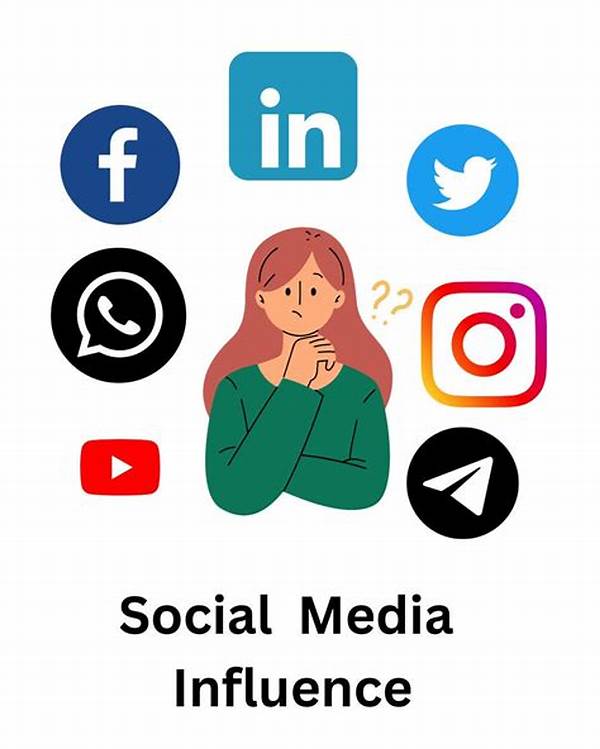In recent years, the role of influencers in opinion shaping has become a topic of significant interest within various fields, including psychology, marketing, and media studies. Influencers, aided by the rapid proliferation of social media platforms, have established themselves as powerful figures capable of swaying public perceptions and opinions. While traditional media once held an uncontested lead in opinion shaping, today’s influencers offer a more personalized and engaging means of communication. Their capacity to affect public views on a wide array of topics, from consumer products to political beliefs, necessitates an understanding of their influence within contemporary society. This article seeks to provide a comprehensive analysis of the role of influencers in opinion shaping, examining the mechanisms through which they exert their influence and the implications thereof.
Mechanisms of Influence
The role of influencers in opinion shaping operates through several mechanisms. First, influencers utilize their established credibility and rapport with their followers, creating a trusted environment for opinion dissemination. Second, their ability to provide relatable and personalized content facilitates a stronger connection with audiences, unlike traditional advertisements. Third, influencers often collaborate with brands and causes, lending their voice and approval to amplify messages. Fourth, through platforms like Instagram, Twitter, and TikTok, influencers reach vast and diverse audiences quickly. Finally, influencers’ strategic use of social proof and peer influence can effectively shape public perception and behavior.
Psychological Appeal
The psychological appeal of influencers plays a central role in opinion shaping. They often represent aspirational figures with whom followers identify or admire, creating a sense of connection through perceived personal attributes. Influencers tend to craft narratives that resonate emotionally, thus fostering a deeper level of engagement and trust. This appeal is augmented by the interactive nature of social media, allowing for a two-way communication model, which significantly differs from the top-down approach of traditional media outlets. As such, influencers’ opinions often carry significant weight, shaping consumer behaviors, lifestyle choices, and even political views.
Economic Impact
The economic impact of the role of influencers in opinion shaping is profound. Brands increasingly rely on influencers to tap into niche markets and demographics that are difficult to reach through conventional advertising means. Influencers can drive significant sales through their endorsements, as they often have the authenticity that traditional marketing lacks. Collaborative campaigns with influencers can enhance brand visibility and credibility, fostering brand loyalty among discerning consumers. Moreover, the ability to track engagement metrics provides valuable insights into consumer preferences and market trends, highlighting the indispensable role influencers play in modern marketing strategies.
Ethical Considerations
The ethical considerations surrounding the role of influencers in opinion shaping cannot be overlooked. The blurring lines between authentic content and paid endorsements raise concerns about transparency and consumer deception. Influencers wield considerable power, which must be exercised with responsibility and integrity to maintain trust with their audience. There is a need for stringent regulations and guidelines to ensure ethical practices in influencer marketing. Furthermore, the potential for misinformation or biased opinions necessitates critical evaluation by audiences to discern fact from personal opinion, reinforcing the importance of media literacy in contemporary society.
Cultural Dynamics
Cultural dynamics play a significant role in opinion shaping by influencers. As diverse voices emerge in the influencer ecosystem, they bring varied perspectives and narratives to the forefront. Influencers often shape cultural trends and challenge societal norms, acting as catalysts for change. Their ability to highlight marginalized voices and topics fosters an inclusive dialogue that transcends geographical boundaries. Consequently, influencers contribute to the global discourse, shaping cultural identities and promoting cross-cultural understanding, thereby playing an integral role in opinion shaping on a broader scale.
Challenges and Limitations
Despite their significant influence, influencers face challenges and limitations in opinion shaping. The rapid dynamics of social media platforms mean that influencer relevance can be transient. Additionally, the oversaturation of influencers dilutes individual impact and may lead to audience skepticism. Algorithms controlling content visibility further pose challenges in maintaining consistent engagement. Even as influencers wield significant power in opinion shaping, they remain susceptible to trends and platform policies, which can limit their reach and effectivity.
Summary and Implications
In conclusion, the role of influencers in opinion shaping is multifaceted, encompassing psychological, economic, ethical, and cultural dimensions. Influencers leverage their followers’ trust and engagement to convert opinions into action, particularly in consumer behavior. However, the dynamic nature of social media, coupled with potential ethical pitfalls, necessitates an awareness of the limitations and responsibilities associated with influencer impact. Examining the mechanisms through which influencers shape opinions, it becomes evident that their role extends beyond mere marketing to becoming agents of cultural and societal influence. As digital environments evolve, understanding the intricacies of this role becomes increasingly vital for both influencers and the audiences they engage. Overall, influencers continue to be pivotal in shaping the opinions of contemporary society, requiring ongoing scrutiny and adaptation to ensure their contributions are both beneficial and responsibly managed.





